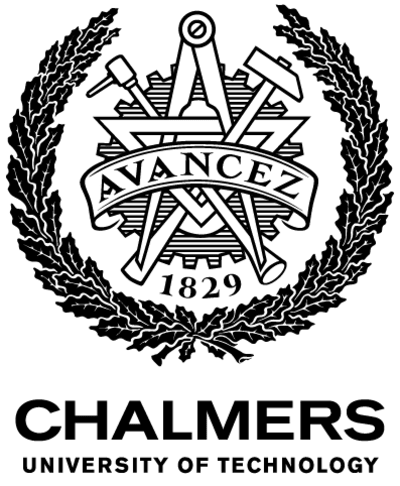
MSc in Nanotechnology: Quantum Engineering
Chalmers University of Technology

Key Information
Campus location
Gothenburg, Sweden
Languages
English
Study format
On-Campus
Duration
2 years
Pace
Full time
Tuition fees
SEK 160,000 / per year *
Application deadline
Request info
Earliest start date
Request info
* tuition fees for non-EU/EEA students
Introduction
Enter the quantum realm and learn to design and create superconducting quantum circuits, working alongside world-class researchers to help design and build Sweden’s quantum computer. Choosing the Quantum engineering profile will give you the opportunity to explore the worlds of molecular electronics, quantum optics and systems, superconducting devices, and more, in one of the best-equipped university cleanrooms in Europe.
Are you interested in an international career in the field of nanoscience and nanotechnology, both at the fundamental level, and in the design and creation of components at the nanoscale? Then the Quantum engineering profile in Nanotechnology might be the right fit for you.
In close collaboration with researchers at the Wallenberg Centre for Quantum Technology (WACQT), you will study the following courses in particular:
- Molecular electronics
- Quantum computing
- Superconducting devices
- Open quantum systems
- Quantum optics and information
- Superconducting devices: fundamentals and applications
- Superconductivity and low-temperature physics
A unique feature is that you will become part of the research environment at Chalmers, with access to our cleanroom and other world-class facilities for labs and group projects. Chalmers is leading the development of quantum computing in Sweden, and you will be right at the forefront of the global race to take the technology further.
Our clean room is one of the few worldwide where master's students can carry out their projects. You will also be introduced to other modern laboratories for both manufacturing and analysis, even in your first year. The conclusion of the program consists of a thesis based on a half-or full-year research work carried out with some of the researchers in the area, either within our departments or with industrial partners. You will have the possibility to continue working in the laboratories as part of your master's thesis.
The master's program in Nanotechnology as a whole is based on both physics and chemistry and will give you a thorough grounding in nanoscale properties and hands-on experience in experimental techniques. Future applications within electronics, telecommunication, and information systems, including quantum computers, medicine, and natural or artificial biosystems will rely heavily upon progress in nanoscale technologies. At the nanoscale, new physical, chemical, and biological properties emerge, and research in this field often takes place on the borders between these disciplines. Proficiency in theoretical and practical aspects of these areas will be important both within industry and academia.
Besides equipping you with a solid theoretical background in physics, chemistry, and technology of nanoscale systems, the program will also provide you with knowledge of the innovative possibilities of nanotechnology and ample hands-on experience in experimental techniques.
The skills and knowledge you acquire will ensure you are in high demand in society, whether you choose to continue your studies further or begin a career in the industry.
General entry requirements
A Bachelor's degree in Science, Engineering, Technology, or Architecture
To fulfill the general entry requirement for a Master's program at Chalmers (at advanced level/the second cycle), the prospective student must hold a degree that is equivalent to a Swedish Bachelor's degree (minimum 3 years, 180 Swedish higher education credits) in either Science, Engineering, Technology or Architecture.
- All applicants must document their formal academic qualifications to prove their eligibility. Only documentation from internationally recognized universities will be approved by the Swedish Council for Higher Education which manages the website universityadmissions.se.
- If an applicant is also a holder of a second degree such as a Master's degree, that may be to fulfill specific (course) requirements, it cannot be used to fulfill the general entry requirement on its own.
In your final year of Bachelor's Studies
Students in their last year of studies who don't yet have documentation of their soon-to-be-completed degree can be accepted.
Restrictions
Degrees that are constructed on one another cannot consist of the same course
Applicants who fulfill the general entry requirements for the second cycle (master’s level) programs and eventually specific entry requirements can be admitted to a master’s program. Applicants cannot be evaluated as unqualified in the qualifying academic merits which include courses from the program’s plan in those programs that they have applied for if that occurs.
Courses included in an earned first cycle degree (bachelor’s level) or professional qualification of at least 180 cr. (180hp) or the equivalent foreign qualification that are prerequisites for master’s qualifications may not be included in the higher qualifications. This also applies to prerequisite courses for master’s programs, regardless of whether they are included in the underlying qualification. *
*) Local Qualifications Framework for Chalmers University of Technology - first and second cycle qualifications.
Restrictions for Citizens from the Democratic People’s Republic of Korea (North Korea)
Chalmers cannot admit applicants with citizenship of the Democratic People’s Republic of Korea only to any program or course, due to the Council Regulation (EU) 2017/1509 of 30 August 2017 concerning restrictive measures against the Democratic People's Republic of Korea and repealing Regulation (EC) 329/2007.
For applicants with double citizenship of which one is of the Democratic People's Republic of Korea and the other of another country, the citizenship of the other country has precedence in this respect.